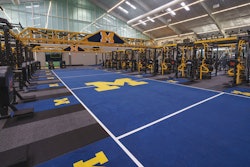Copyright 2016 Star-News, Inc.
All Rights Reserved
Star-News (Wilmington, NC)
MOSCOW - Russia's doping cover-up went far beyond the Olympics, according to a vast archive of emails released by a World Anti-Doping Agency investigator.
Besides the 12 medal winners from the 2014 Winter Olympics whose samples were supposedly tampered with, messages show a system which covered up drug use by blind athletes and children as young as 15.
In 2015, a year after the Olympics, Russia's top doping scientist, Grigory Rodchenkov, complained that the scheme Richard McLaren termed the disappearing positive methodology had grown so large it was covering for doping and apparent abuse of power in disabled sports.
Five blind athletes in powerlifting, a form of weightlifting, had tested positive for the banned steroid methandienone at the same training camp. Rodchenkov suspected unscrupulous coaches eager for medals were doping the athletes without their knowledge.
"It's a disgrace," Rodchenkov wrote to Alexei Velikodny of Russian state's Sports Training Center. The coaches were picking on the blind (who) can't even see what people are giving them.
A year earlier, the records show Velikodny issuing a save order for a 15-year-old competitor in track and field the instruction which meant a failed test was reported as negative.
The young athlete one of the most promising juniors in Russia at the time was flagged up as a Crimean athlete in the emails, a distinction which may have helped him avoid a ban after testing positive for marijuana. It was May 2015, two months after Russia s annexation of the Crimean peninsula, and a failed test at one of the first competitions in Russia featuring Crimeans could have been embarrassing.
McLaren's report alleges more than 1,000 Russian athletes benefited from a cover-up scheme administered by government officials and Rodchenkov, the Moscow lab director who later fled Russia and turned his emails over to WADA.
None of the writers of the emails responded to requests for comment. However, the Russian authorities have not disputed the content of the messages. Some of the authors have been suspended from their jobs, as was then-Deputy Sports Minister Yuri Nagornykh, who was placed on leave in the summer and resigned in October.
The emails show a deeply corrupt system, with lab staff worried about their industrial-scale doping cover-up being exposed while they faced pressure from ambitious officials to save more top Russian athletes from doping scandals. Even Rodchenkov struggled to keep pace with the sheer scale of Russian doping.
In early March 2014, shortly after the Sochi Olympics had finished with Russia at the top of the medals table, Rodchenkov remained under pressure.
By his own admission, Rodchenkov had spent Russia's home Winter Olympics swapping dirty samples in the dead of night in the temporary Olympic laboratory in Sochi, covering for up to 12 medal winners whose samples appear to have been tampered with, according to the McLaren report.
Still, running the Sochi lab ahead of the Paralympics later in March, Rodchenkov was trying to hide his deceptions from the numerous foreign experts drafted in to ensure the lab ran smoothly. That didn't stop him from coming under state pressure to cover up more cases, emails leaked by Rodchenkov and published by McLaren show.
"I can't ignore obviously positive samples in front of everybody," he wrote to the Sports Training Center s Velikodny. That was in response to a message asking Rodchenkov to cover for nine track and field competitors shortly before the world indoor championships in Poland that month.
Six athletes could be saved, but Rodchenkov insisted three particularly egregious cases couldn't be covered up. The athletes who gave them were now corpses who can't be brought back to life.
Two months later Rodchenkov was again exasperated, telling Velikodny to get track and field together and give them a final warning. They've lost all fear. They should all just be banned already.
Velikodny s response: "I agree!"
The Russian track team would be banned by the end of the year, though not in the way Rodchenkov had envisioned. A World Anti-Doping Agency investigation into the team was already underway and would publish a damning report in November 2015, causing track's governing body to suspend Russia from all international competition, eventually including the 2016 Rio de Janeiro Olympics.
The email archive contains hundreds of pages of messages, mostly between Rodchenkov and Velikodny, with occasional cameos from junior lab staff, drug-testing officials and Nataliya Zhelanova, who was anti-doping adviser to Sports Minister Vitaly Mutko.
The writers certainly knew the risk if their emails were ever made public.
In November 2013, three months before the Olympics, Rodchenkov issued an order that Russian officials may wish he, too, had followed: "Delete all messages urgently!"
In this file photo a car stands is front of Russia's national drug-testing laboratory. It was at this laboratory, and its former site elsewhere in Moscow, that Rodchenkov conducted pioneering research into steroids, at the same time as he says he was giving Russian athletes a cocktail of banned substances. Pavel Golovkin/Associated Press
In this file photo employees Natalya Bochkaryova, left, and Ilya Podolsky work at the Russia's national drug-testing laboratory. Alexander Zemlianichenko/Associated Press
Read More of Today's AB Headlines
Subscribe to Our Daily E-Newsletter
Terms and Conditions Privacy Policy































